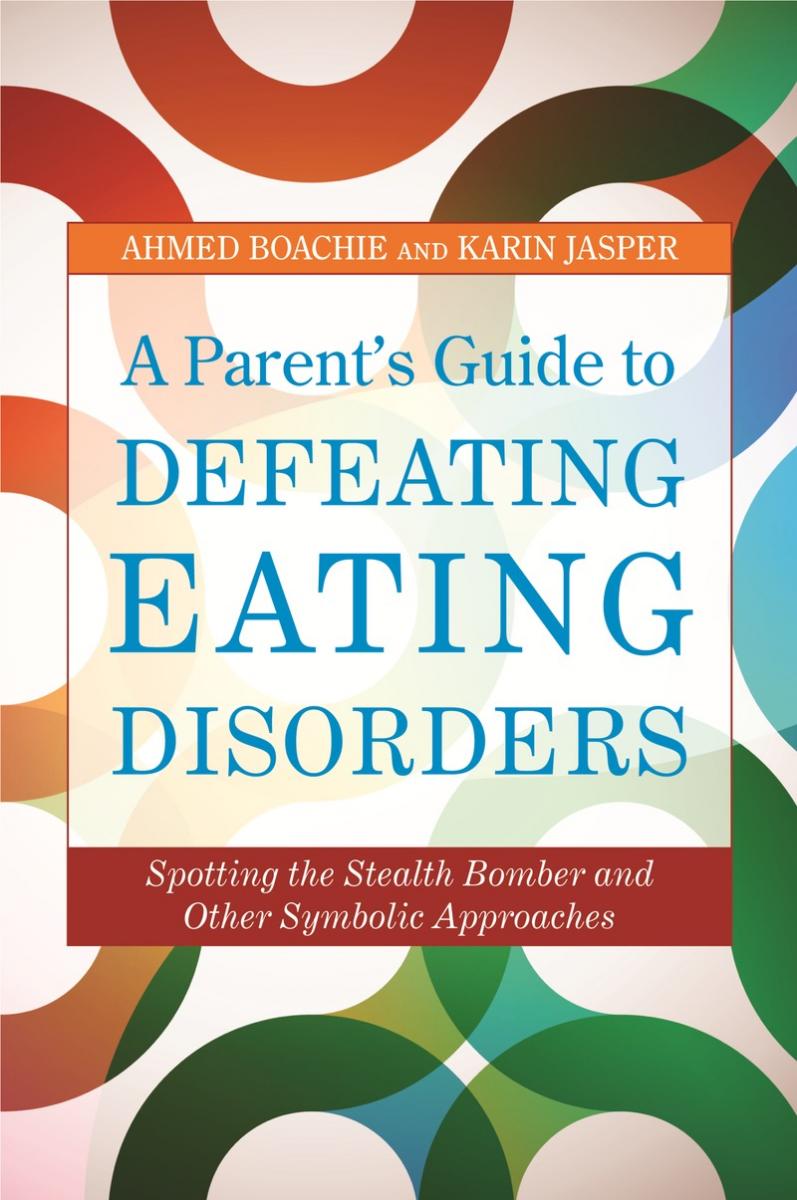A Parent’s Guide to Defeating Eating Disorders
By Liz Lockhart
A recently published book called ‘A Parent’s Guide to Defeating Eating Disorders’ provides much needed  information for parents who are faced with the bewildering world of a child’s eating disorder.
information for parents who are faced with the bewildering world of a child’s eating disorder.
“Parents are simply invaluable in recovery” say the authors Boachie and Jasper. How do you reach out to your child when they have a serious, life threatening illness that even medical professionals struggle to understand? How do you help when it can be hard to convince your son or daughter that you are on their side? The first step must be finding some way of putting the problem into words that everyone can understand, and for an illness as complex as eating disorders this is never easy.
“Eating disorders come to young people when they are at their most vulnerable. They promise young people everything and make them disbelieve and distrust those who love them most,” the authors add.
Ahmed Boachie and Karin Jasper are both experienced eating disorder specialists who realised that the first step to combating an eating disorder is finding this common language. Language that enables parents to see aspects of their children’s situation that were previously invisible, and which makes the child realise that the treatment, and the people trying to help them are not the enemy. One of the most dangerous aspects of an eating disorder is the stealthy manner in which it inflicts damage. Parents are frequently unaware it is harming their child until the damage is done, so the analogy of a stealth bomber fits perfectly and helps all concerned to understand how dangerous eating disorders are.
The Stealth Bomber
Stealth aircraft use technology that makes them very difficult to detect, even by radar. Their attack missions cannot be prevented by conventional means. If you are looking for a Stealth Bomber with binoculars, you will think, “Nothing is there.” In the meantime, it will have dropped bombs and disappeared before you realise it has hit you.
Mum: “Sweetie, are you eating enough?”
Daughter: “Yes, mom, I ate a lot over at my friend’s house.
An eating disorder is like a stealth bomber: very challenging to detect and very destructive. Most of the typical questions we ask to uncover it are about as effective as using binoculars to look for the Bomber.
“Because eating disorders are poorly understood and there are many myths and misconceptions about them, both parents and adolescents need education about them. Information is essential, but analogies and metaphors can help to improve understanding in a way that makes it easier for parents to ally with the treatment team to help their children and for children to accept treatment.”
A Parent’s Guide to Defeating Eating Disorders, Spotting the Stealth Bomber and Other Symbolic Approaches (ISBN 9781849051965, £12.99) is published by Jessica Kingsley Publishers. If you would like to buy a copy you can do so by visiting http://www.jkp.com/catalogue/book/9781849051965





